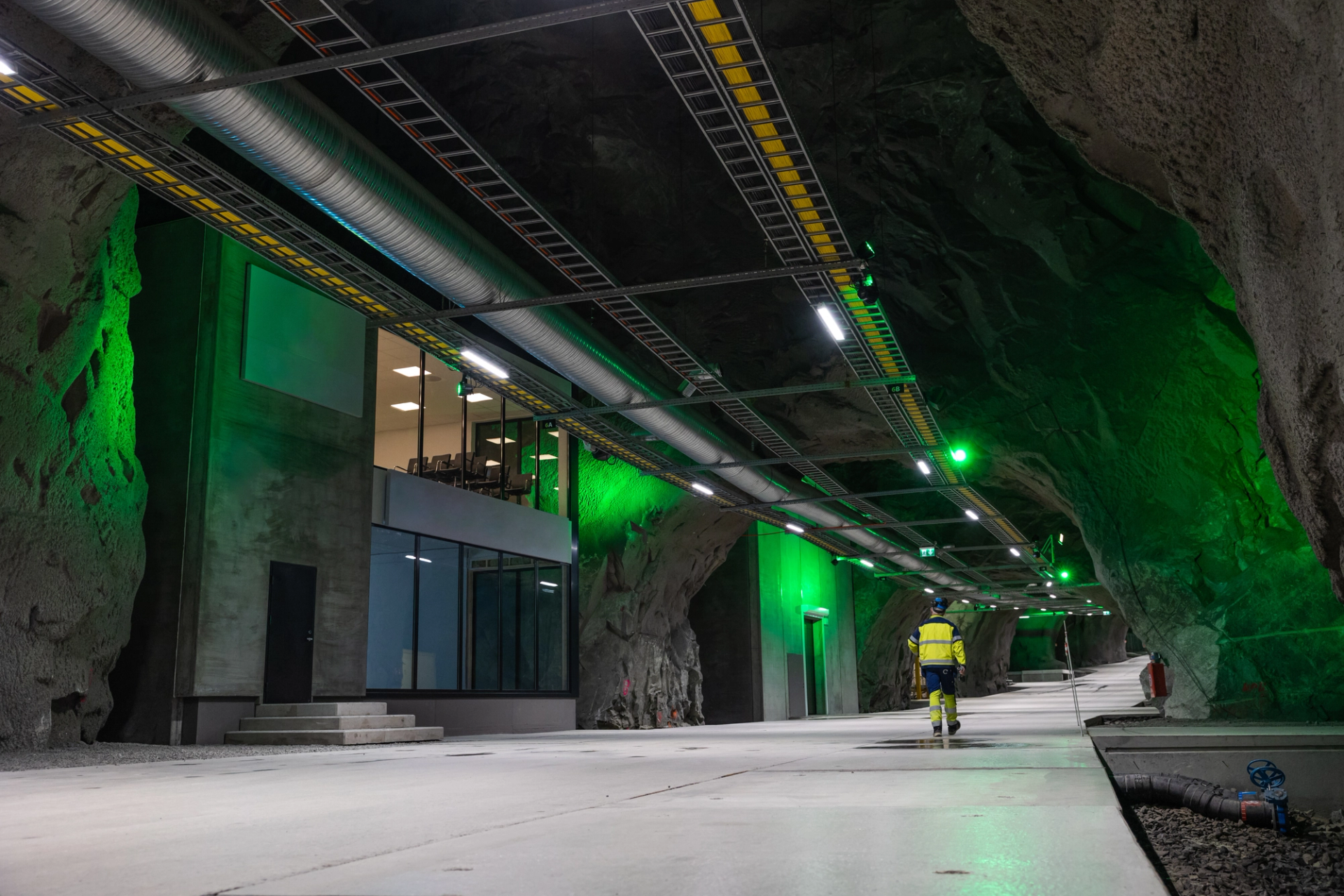Digital infrastructure
The backbone of modern society

During the past 10 years, the establishment of terrestrial as well as subsea fibre cables, both within and outside of Norway, as well as the growth of the data centre industry have led to an enormous strengthening of Norway’s digital infrastructure.
The main industry organisation is Norwegian Data Centre Industry, whose members include not only data centres and fibre providers, but also a growing ecosystem of suppliers – including the builders of Norway’s digital infrastructure.
Innovation in the sector is also influencing other industries. The data centre industry is working to optimise collaboration between the data centres and the power grids, and cross-industry partnerships are emerging to make use of excess heat generated by data centres.
Cost-effective, climate-friendly data centres
Norwegian data centres and data centre sites offer renewable, affordable energy and excellent connectivity to European data hubs. The data centre ecosystem also includes a highly competent IT and technology sector backed by a government commitment to develop the industry and build a national value chain.
Powered by renewable energy
Data centres require a lot of energy. In Norway, virtually all electricity – for industries, cities and homes – comes from clean, renewable hydropower. Hydropower is the ideal renewable energy source for data centres, as it can be stored to provide clean energy around the clock. Hydropower plants may have an environmental impact of their own, but due to natural conditions Norwegian hydropower has a minimal ecological footprint.
Excellent connectivity to European “data highways”
High-speed submarine fibre cables provide direct connectivity between Norway and Europe as well as the US. This enables Norwegian data centres to operate at a latency of between 12 and 20 m/s round trip (RTD) to Europe’s most important connectivity hubs: Frankfurt, London, Amsterdam and Paris. Additional submarine cables are under construction, further improving connectivity between Norway and the UK as well as the European continent.
For an overview of Norway’s subsea connectivity, go to Submarinecablemap.com
Full integration into the EU market
Norway, while not a member of the European Union (EU), is part of the European Economic Area (EEA). The EEA agreement extends the “four freedoms” to Norway, ensuring free flow of capital, personnel, services and goods between Norway and the rest of the EU.
It also guarantees that all relevant EU legislation for data storage and use is implemented here, such as the General Data Protection Regulation (GDPR). Therefore, for a provider of data hosting services it makes no difference whether personal data relating to, for example, Dutch clients is hosted in a data centre in France or in Norway.
Public commitment to data centre development
In 2018, the Norwegian Government launched the world’s first national data centre strategy, including tax reductions and incentives to improve connectivity. This strategy has already inspired a positive spiral of investments. In 2019, Microsoft opened several data centres in Norway, while Volkswagen located a centre for high-performance computing (HPC) here and Google bought a large plot of land from Statkraft. The Government published a revised strategy in 2021, which focused on developing a sustainable data centre industry in Norway, continued to develop the industry, and Google took the decision to start building a data centre in Skien. A new data centre strategy is due to be launched during 2025.
Current considerations
The Norwegian Government has been vocal about its concern with regard to crypto mining and pressing challenges such as high energy consumption and lack of local value creation. Norway is currently considering potential policy measures to address the challenges related to crypto mining.
Invest in Norway remains dedicated to the Norwegian data centre strategy, and we are looking into how it might be further developed by addressing emerging challenges, especially relating to energy and crypto.
On 1 January 2025, Norway introduced a new regulation for data centres, requiring operators to register with the Norwegian Communications Authority (Nkom). Operators must provide information about services and clients, estimate power usage and appoint a contact person for government enquiries.
Established and growing data centre ecosystem
In recent years, the data centre ecosystem in Norway has grown considerably, both in terms of operators and suppliers and related industries.
According to Elhub, the central IT system provider for the Norwegian power industry, annual electricity consumption by data centres in Norway increased from 822.14 GWh in 2022 to 1 612.88 GWh in 2024, a growth of 96.2 per cent (source: Elhub consumption analysis of data centres in Norway).This strong growth is expected to continue.
To learn more about the ecosystem, go to the Norwegian Data Centre Industry website.